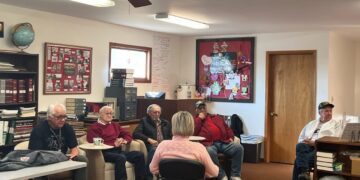Abraham Lincoln’s Lyceum Address proves prescient about the dangers of enflaming citizens’ passions for political ends. Josh Hammer writes:
In his 1838 Lyceum Address in Springfield, Illinois, a 28-year-old Abraham Lincoln spoke on “the perpetuation of our political institutions.” The speech was eerily prescient, coming 23 years as it did before then-President Lincoln presided over a nation tragically brought into a grisly Civil War — the ultimate test of that “perpetuation” — by the assault on Fort Sumter.
But Lincoln’s Lyceum Address was not merely prescient insofar as Fort Sumter was concerned. Indeed, much of the speech, with its emphasis on the perils of mobocracy, reads as if it could have been delivered yesterday. As Democratic activists today, much like their 19th-century predecessors, yet again resort to thuggish appeals to mob force, it is incumbent upon the GOP — the “Party of Lincoln” — to heed and utilize its spiritual founder’s lasting wisdom.
In Springfield, Lincoln warned that “the innocent, those who have ever set their faces against violations of law in every shape, alike with the guilty, fall victims to the ravages of mob law.” Then, carefully connecting rule by mob with declining civic efficacy and democracy itself, Lincoln added: “By the operation of this mobocratic spirit, which all must admit, is now abroad in the land, the strongest bulwark of any Government, and particularly of those constituted like ours, may effectually be broken down and destroyed — I mean the attachment of the People.”
[Josh Hammer, "Against American Mobocracy,” The American Spectator, May 19]







